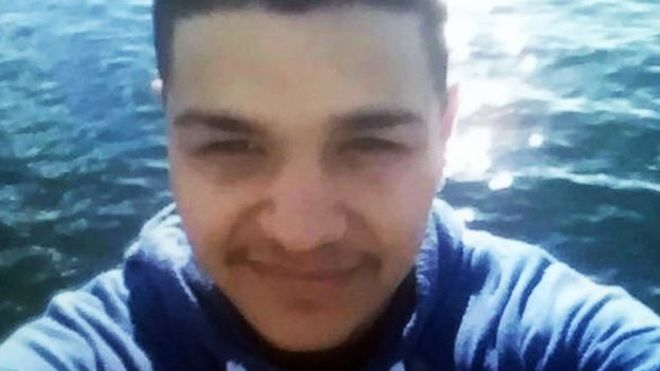
The first of the so-called “dreamers” arrested under the Trump administration now faces deportation. Is this immigration enforcement business as usual or something new?
Daniel Ramirez Medina’s parents brought him to the US when he was only seven years old. According to his lawyers, he settled in California, attended school there, worked and grew into a young man. He now has a three-year-old son of his own.
The 23-year-old also applied for and was granted Deferred Action Childhood Arrival status. The 2012 Obama administration programme allows undocumented immigrants who were brought here as children to remain in the country.
Despite that, Medina was arrested on 10 February and is facing deportation after an immigration raid on the home where he was staying in Washington state.
A Day Without Immigrants protest sees US businesses close
Trump launches stinging attack on media
The government says he is a gang member. Medina’s lawyers say they are lying. And all across the country hundreds of thousands of other Daca recipients are wondering what this means for them.
At a press conference on Thursday, President Donald Trump delivered a mixed message about Daca, saying both that he has sympathy for the roughly 750,000 recipients, but adding not all of them may be worthy.
“You have these incredible kids in many cases - not in all cases. In some they’re having Daca and they’re gang members and drug dealers,” he said.
“It’s a very, very tough subject. We’re going to deal with Daca with heart.”
Hours later, local media in San Antonio, Texas, reported a possible second case of a Daca recipient being detained - this time, a 19-year-old art school student who was arrested for marijuana possession.
In order to qualify for Daca, applicants under the age of 30 submit personal information to the Department of Homeland Security. They must go through an FBI background check and have a clean criminal background, and either be in school, recently graduated or have been honourably discharged from the military. In exchange, the US government agrees to “defer” any action on their immigration status for a period of two years.
Medina, according to his lawyers, passed this process twice, obtaining his most recent Daca renewal in May 2016. He also obtained a work authorisation card.
In the early morning of 10 February, Medina was awoken by a US Immigration and Customs Enforcement raid on the home where he was staying in Des Moines, Washington, outside Seattle. The agents were looking for Medina’s father, and after they detained him, they say he told them his two sons were also illegal.
In a court filing justifying Medina’s arrest, lawyers for the US Department of Justice wrote that Medina also admitted he was in the country illegally when they asked him. At this point, they determined his Daca status was null and arrested him.
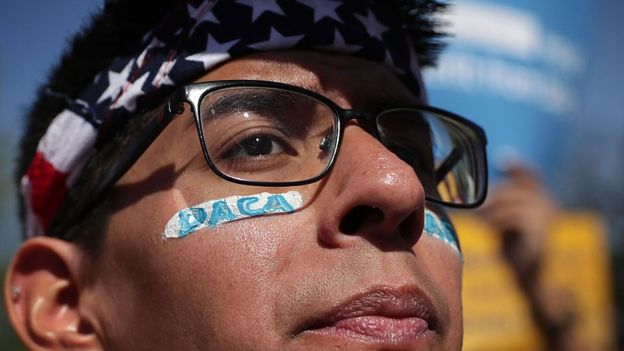
Medina’s lawyers argue that he repeatedly told ICE agents that he had Daca and that his work permit card was in his wallet. They say his detention is a constitutional violation of his right to due process.
Whether or not ICE agents are able to start to revoke a Daca holder’s authorization on the spot will be a crucial point of contention, says immigration lawyer Katheryn Wasylik.
“Is there some sort of additional action that ICE has to take to revoke that, other than saying, ‘Oh hey, we’re revoking it today, so sorry for you,’” she asks. “That’s what we’ll have to watch for.”
Cyrus Mehta, an immigration attorney and adjunct professor at Brooklyn Law School, says the arrest in and of itself signals a new era in immigration policy.
“Under the old priorities of the Obama administration, he would have never been arrested in the first place,” says Mehta.
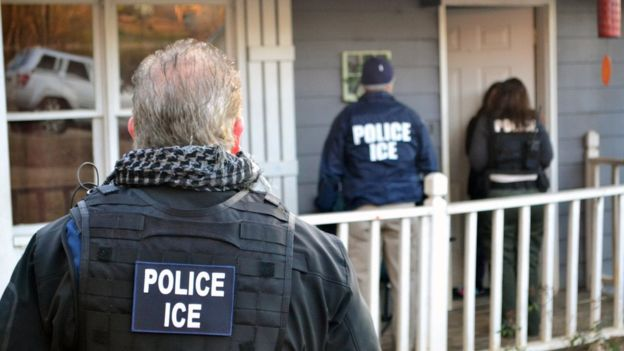
Additionally, lawyers for the US Department of Justice wrote that once he was in their custody, Medina admitted several times to past and present gang affiliations.
“Petitioner stated ‘no, not no more,’ when asked if he is or has been involved with any gang activity,” the filing reads.
“Petitioner was then questioned further regarding a ‘gang tattoo’ on his forearm, to which he responded that he ‘used to hang out with the Sureno’s in California,’ that he ‘fled California to escape from the gangs,’ and that he ‘still hangs out with the Paizas in Washington State.’”
According to Steve Yale-Loehr, an immigration law expert at Cornell Law School, if Medina has been convicted by a jury or admitted through a plea deal that he was part of a criminal gang, revoking his Daca status and beginning deportation proceedings would represent no change in policy from the Obama to the Trump administration. Under Obama, gang affiliation was grounds for removal.
“[However], if the facts show they just think he was the member of a gang and they don’t have any facts and they just see a tattoo on him - that raises more troubling concerns,” says Yale-Loehr.
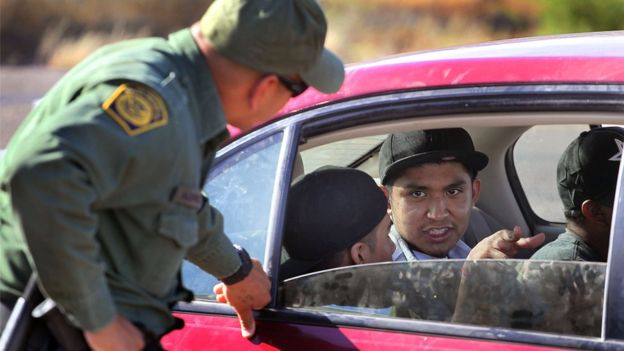
ICE officials may be acting under broadly expanded deportation guidelines laid out in President Trump’s 25 January executive order, called “Enhancing Public Safety in the Interior of the United States”.
Section 5 of the order enumerates who is considered a “priority” for deportation, and now includes not just those convicted of crimes, but anyone who has been charged with a crime, anyone who has “committed acts that constitute a chargeable criminal offence”, and anyone who “in the judgement of an immigration officer … [poses] a risk to public safety or national security”.
Wasylik says this language represents a huge expansion of who is eligible for removal and could explain Medina’s detention.
“The fact he had Daca didn’t matter. It was the ‘threat to public safety’ that overrode that,” she says.
Medina’s lawyer Mark Rosenbaum fired back at the DOJ calling the charges of gang ties against Medina “false”, and characterising his remarks as a coerced “supposed confession” with no evidence to back it up. He also says the tattoo in question reads “La Paz BCS”, a reference to the capital city of Baja California Sur, the Mexican state where Medina is from.
“And while utterly implausible and wholly fabricated, these claims still would not be sufficient evidence that Mr Ramirez is a threat to the public safety or national security,” wrote Rosenbaum.
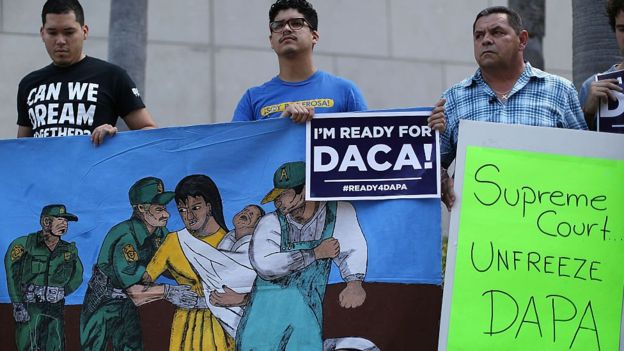
The two sides are due back in court on Friday morning to determine if Medina’s detention is proper, or if his Daca status should have prevented the arrest. Media is also due to appear before an immigration judge in the course of his deportation proceeding.
Yale-Loehr says that even if the government prevails in a court hearing on the case on Friday, that does not necessarily mean that Medina will be deported.
“The government has to prove the individual has violated the immigration law in some way,” he says. “This is a two-step process.”
Regardless of the outcome of the case, Yale-Loehr says Medina’s story has certainly spread fear among the so-called Dreamers. Some organisations are recommending that young undocumented immigrants refrain from applying for Daca, and that those who already have it refuse to open doors or speak to ICE agents who do not have warrants. They advise having an immigration lawyer on stand-by for any issues.
“People should remain silent if they are questioned by immigration enforcement officials so they are not coerced into saying something against their interest,” says Yale-Loehr.
“Even people who are undocumented have certain constitutional rights, including the rights to remain silent and the right to call an attorney.”